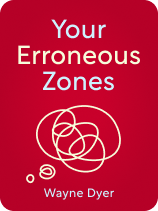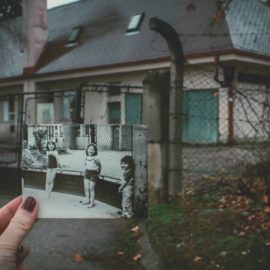

This article is an excerpt from the Shortform book guide to "Your Erroneous Zones" by Wayne Dyer. Shortform has the world's best summaries and analyses of books you should be reading.
Like this article? Sign up for a free trial here.
What’s the psychology of procrastination? How can you stop procrastinating?
Procrastination is a self-sabotaging behavior because you’re delaying something you’re supposed to do. Wayne W. Dyer contends that procrastination in itself isn’t harmful, as it only becomes a bad behavior when it leads to distress.
Learn more about the different types of procrastination and how to overcome it.
Procrastination as a Self-Defeating Behavior
Dyer says that among all the self-sabotaging behaviors, procrastination is the most common; most of us put things off even when we know that doing so isn’t good for us. More than just avoiding tedious tasks such as, say, doing your taxes, procrastination can manifest in more impactful ways.
For example, you might procrastinate on living a healthier lifestyle (“I’ll start on Monday”) or getting out of an unhealthy relationship.
| Positive, Negative, and Neutral Procrastination Dyer writes that procrastination itself isn’t harmful—in fact, there are positive and neutral forms of procrastination. In Procrastination, Jane Burka and Lenora Yuen dive into the psychology of procrastination by explaining that the habit’s positive or neutral when you delay less-important tasks to attend to important ones. These types of procrastination have little to no long-term, negative consequences. Similar to Dyer, Burka and Yuen say negative procrastination means delaying tasks to the extent that you delay living a fulfilling, healthy life. This leads you to perform poorly on tasks, causes you to miss opportunities, strains your relationships, and compromises your physical health. Negative procrastination also means procrastinating on things like living a healthier lifestyle or making relationship changes. Many people manage this tendency by saying that they’ll start on January 1st, believing that the New Year will help them usher in a new version of themselves. In When, Daniel Pink explains that delaying change in this way is due to the “fresh start effect”—something symbolizing a beginning, like the New Year, lets people draw a line that mentally separates the past and the future. Pink advises taking advantage of the fresh start effect to get started on something you’ve been putting off. |
Dyer says the reason you succumb to procrastination is that it absolves you of responsibility to venture into unfamiliar territory and take action. It also allows you to fantasize that things will sort themselves out—for example, you might stay in an unhealthy relationship because you tell yourself it will get better once your partner realizes they need to change.
(Shortform note: In The Procrastination Equation, Piers Steel specifies other reasons we succumb to procrastination. One is that we choose instant gratification over long-term gain—this stems from a human tendency to see future tasks as abstract and immediate tasks as concrete, so we’re more likely to act based on immediate instead of future concerns. Another is that we dislike the task we must complete and prefer to spend time on activities we enjoy doing more.)
How to Stop Procrastinating
Dyer says that to stop procrastinating, you should:
1) Reflect on why you’re delaying something. For example, is it because you’re afraid of failing? Consider the worst possible outcome if you do what you’ve been avoiding—being clear about what you’re avoiding will help you face up to it.
2) Take action, whether that means taking the first step, devoting just five minutes to a task, or finally getting it out of the way.
(Shortform note: Some people may have a more difficult time putting Dyer’s tips into practice. That’s because procrastination may be a complex psychological phenomenon that involves having a poor grasp of time and difficulty regulating emotions. In the same way that depressed people can’t “just cheer up,” procrastinators can’t “just do it already.”)

———End of Preview———
Like what you just read? Read the rest of the world's best book summary and analysis of Wayne Dyer's "Your Erroneous Zones" at Shortform.
Here's what you'll find in our full Your Erroneous Zones summary:
- How you're getting in the way of your own happiness
- The self-defeating practices that paralyze you and keep you from living a fulfilling life
- Why you hold on to your erroneous zones and how to eliminate them






